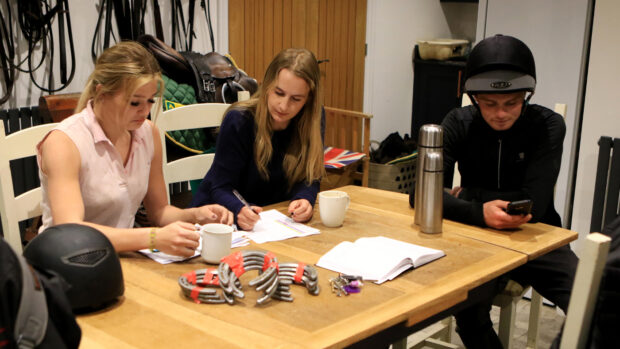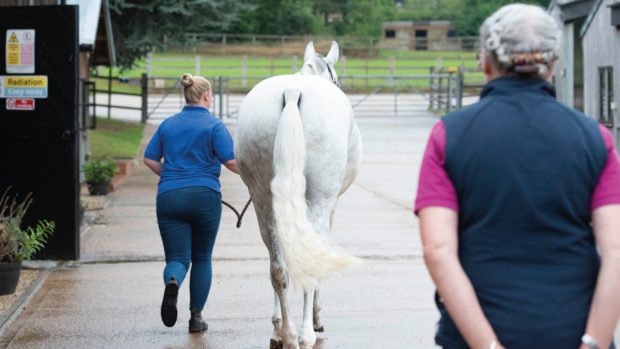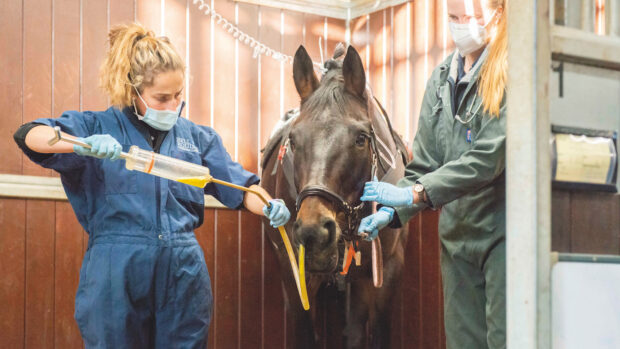A confirmed case of West Nile virus in the UK “need not prompt alarm”, the British Equine Veterinary Association (BEVA) says, but is a reminder of being vigilant for signs of disease.
The viral infection, which can be fatal and can also affect people, was confirmed in an unvaccinated warmblood mare, who had recently returned to the UK having been competing in southern Spain, by the Animal and Plant Health Agency, on 6 November. The mare started showing muscle twitches and gait abnormalities on her return journey, and her signs worsened after she reached home, including extensive twitching, abnormal posture, ataxia and hindleg weakness. Her signs improved and she was discharged from the Hertfordshire hospital on 8 November.
“The timeline was such that the infection was almost certainly contracted in Spain,” a BEVA spokesman said. “The horse was transported straight to a leading equine hospital and having now been discharged, is recovering well at home.”
BEVA stressed that there is no risk of the virus being transmitted. It is a notifiable disease as it is a threat to human health.
“However, this case need not prompt alarm as the infection does not spread from horses to other animals or people,” the spokesman said.
“Although horses can become very sick, and even die, when they become infected, they have very low levels of virus circulating in their bodies, insufficient for the infection to be transmitted.”
This is not the first time the virus has been confirmed in the UK – it was diagnosed in October 2013, in a horse who had arrived here from Europe. The disease is becoming increasingly common in southern and eastern Europe, where it is spread by mosquitos.
“With rising temperatures spread of West Nile virus to northern European countries, including the UK, is increasingly possible,” the BEVA spokesman said. “Cases in horses have been identified this year in multiple countries, including France and Germany. This case serves as a reminder of the value of vaccinating horses travelling to countries where the virus is common, such as southern and eastern Europe and the Americas.
“Vaccines are available in the UK. The risk is highest in summer and autumn when mosquitoes are more prevalent. It is also a reminder of the importance of remaining vigilant for signs of the disease in horses that are travelling. Signs typically include muscle tremors, weakness, stiffness, ataxia – wobbly gait – and potentially recumbency.”
You might also be interested in:

Vaccine to control West Nile virus licensed for use in Europe
Produced by Fort Dodge Animal Health the vaccine, Duvaxyn WNV, is the first equine West Nile vaccine to be licensed

Climate change: exotic disease and horse and human welfare issues

Equine flu vaccination shortage remedied – as multiple outbreaks occur

Subscribe to Horse & Hound magazine today – and enjoy unlimited website access all year round
Horse & Hound magazine, out every Thursday, is packed with all the latest news and reports, as well as interviews, specials, nostalgia, vet and training advice. Find how you can enjoy the magazine delivered to your door every week, plus options to upgrade your subscription to access our online service that brings you breaking news and reports as well as other benefits.





